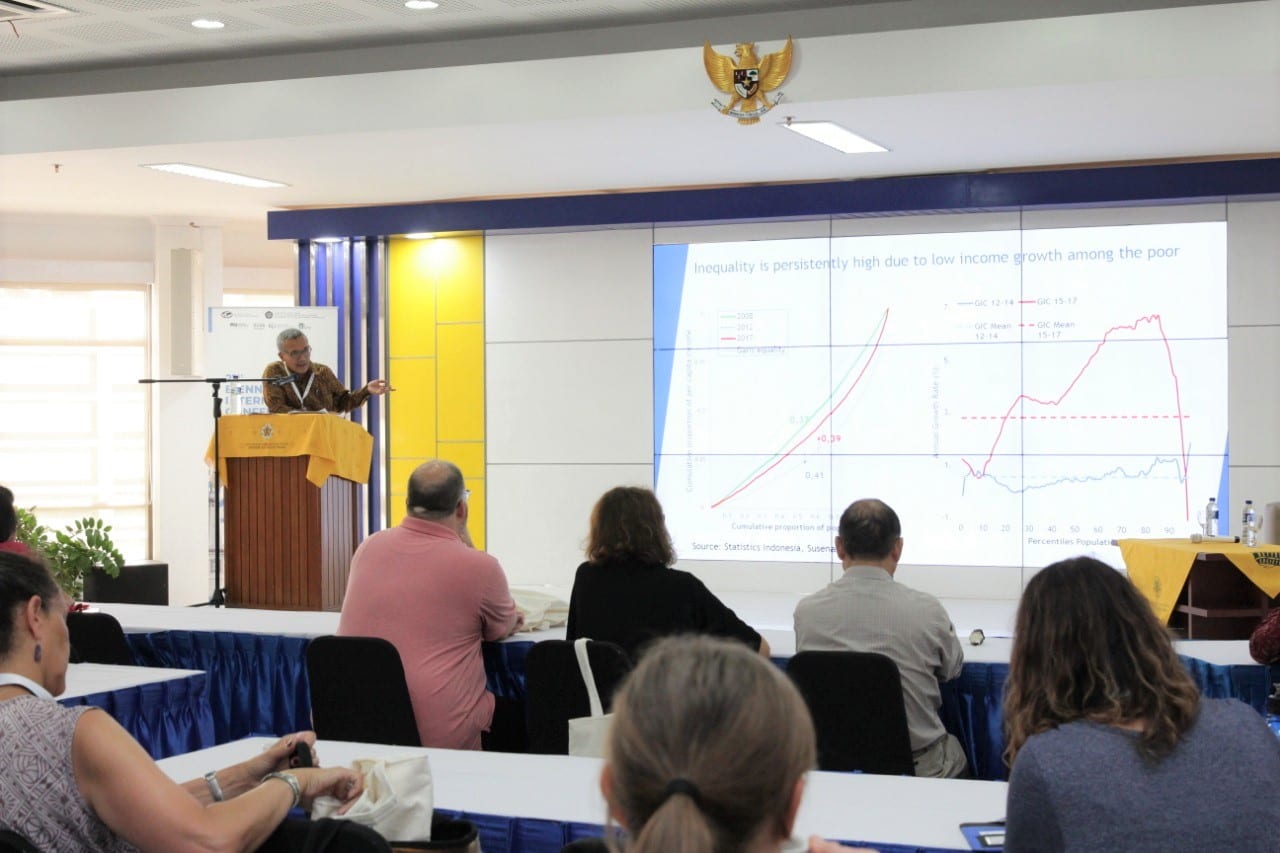Yogyakarta, 19 July 2019—The four day long 21st Biennial International Conference Of International Consortium for Social Development had reached its conclusion and was offically closed by Manohar Pawar as the President of ICSD in Balai Senat, Gedung Pusat UGM.
In ICSD, various ideas and narration was brought by the 250 presenters from 28 countries. In the first day on Tuesday, the 16th of July, the conference gave spotlight on how bad Indonesia’s achievements on SDGs is, which was brought by a keynote speaker, Vivi Yulaswati as the National Director for Alleviating Poverty and Development of Social Welfare.
Vivi expressed how generally speaking, Indonesia’s poor and vulnerable equates to 53,3 million people. She expressed how the data shows that vulnerable people will tend to be vulnerable again with a possible risk due to disease, losing of jobs, inflation of food price, natural disasters, and economic crisis. Besides that, chronic poverty continues to be experienced by 9,4 million people in Indonesia. There needs to be a strengthening of economic infrastructure with aid from donor institutions to tackle the aforementioned issue.

On the second day, Wednesday 17th of July, James Williams Herbert from Arizona State University brought the conference to discussing the challenges of sociopreneurs in realizing social justice within SDGs. “The role of sociopreneurs are immense due to the practical, innovative, and sustainable approach in giving benefits to society and is dedicated to social betterment that focuses on the marginalized and poor,” James explained.
According to James, the activities of sociopreneurs can give social transformation in the sectors of education, health, environment, and business development. This activity resolves the practices of traditional social issues alleviation because it has crossed the rigid limits of practical disciplines. Even though globalization has been successful in shortening the effort to disseminate information through technologies to create a limitless world, the other side of globalization still leaves its problems. Because of that, there still needs to be a guarantee for the protection of man.
On the third day, Thursday 18 July 2019, Annamaria Campanini, the President of the International Association of Schools of Social Work (IASSW) shared her notions on the Streamlining of Ecological Approach in Social Development. According to Campanini, the increase of environmental damages should have been a common discussion and concern because this is related to structures, way of living, and values that is held by society.
Campanini stated how social development acknowledges the existence of human rights that is needed to live together, besides the existence of collective responsibility. As a comprehensive effort, then there needs to also be a participative research that not only involve social development experts but also social services providers and members of the community. Hence, the practice of social development is supposed to use interdisciplinary and multilevel strategy. In line with what Campanini said, Sudarno Sumarto, as a member of the national TNP2K team, stated that in order to respect human rights, there needs to be investment on social protection policy. That investment is in the form of guarantee of education and health for society.
On the last day and peak of the event on Friday, 19 July 2019, Sigit Reliantoro as the Secretary for the Directorate General of Pollution and Environmental Damage Control expressed how the Proper (Program on the Ranking of Comapnies’ Peformance Assessment on Environmental Management/ Program Penilaian Peringkat Kinerja Perusahaan Dalam Pengelolaan Lingkungan), the government has pushed companies in an active role to achieve social justice. There are many companies that have executed programs on commitments of environmental social responsibility. Ministry of Environment and Forestry (?).
On the closing of the event on Friday afternoon, Manohar Pawar hopes that a paper conference that is affluent in knowledge does not stop only on presentation, but also is able to be made into books and publications as concrete results and means of knowledge to the whole world. Pawar also appreciates UGM and all parties that have worked hard on the event. “The conference’s momentum is a symbol of the different fingers but still under one aim which is to come together to be equal and able to lift something,” he closes.
